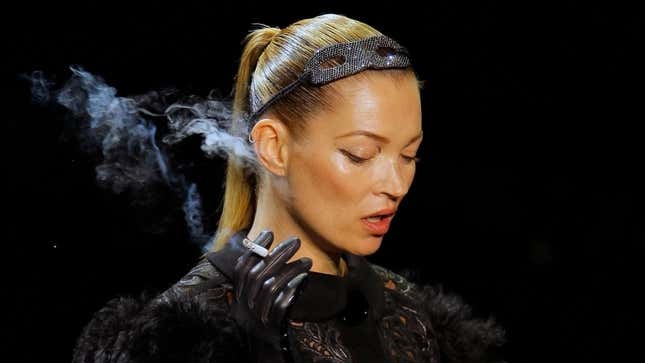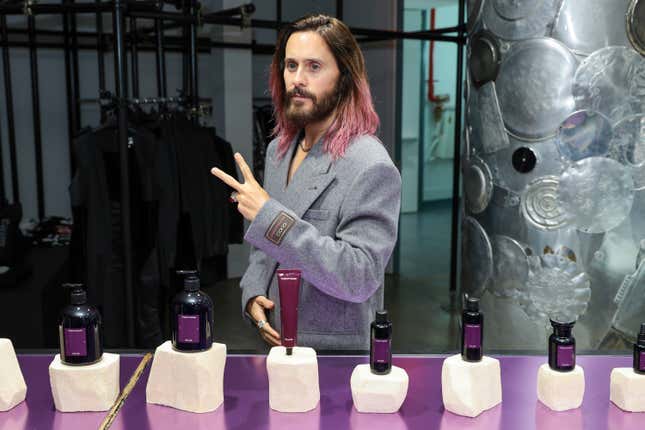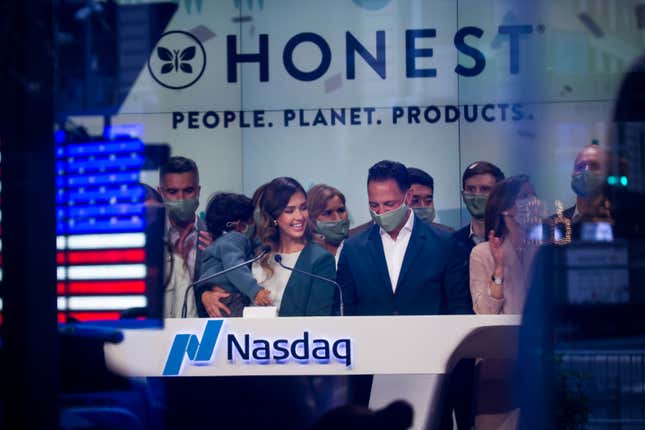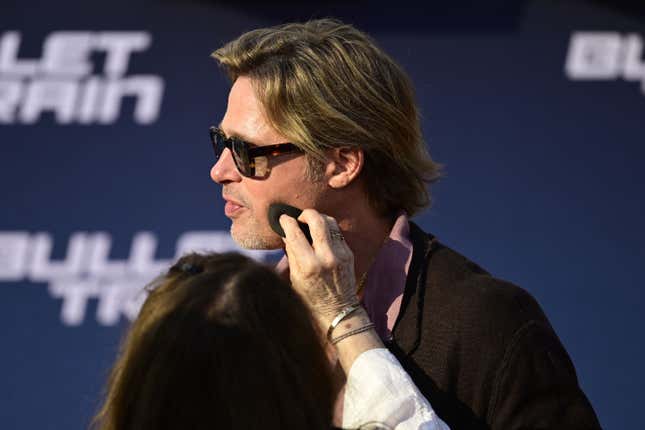The Year Celebrity Wellness Brands Abandoned Aspiration
Brad Pitt, Scarlett Johansson, Kate Moss...they all phoned it in hard while launching their new skin serums and sacred mists. We're catching on.
In Depth
Photo: Jacques Brinon
There was a time when leading a wellness brand required a celebrity to put their whole, excuse me, gut biome into it. Gwyneth has all but discarded her acting ambitions to pursue bottling up her blonde litheness. A couple years after Paltrow launched Goop, Jessica Alba founded the Honest Company, which touts non-toxic household products, and mostly stepped away from acting. She, too, exists in the liminal space of celebrity-turned-business-maven. Every day Rihanna doesn’t release new music (no pressure, but…), she further cements her association with Fenty Beauty.
All three women’s personal images are closely aligned with their companies, the highest of virtues in the world of celebrity-backed brands that aren’t collabs with existing brands. Even Kourtney Kardashian’s lifestyle and wellness hub Poosh, while pretty calorically light in content and commerce, is in sync with how I perceive the eldest Kardashian. “Why Won’t He Cuddle With Me After Sex?” is one recent blog post you can read on Poosh before clicking over to purchase a $130 thong with a strand of pearls for a crotch.
But recently, and this year in particular, we’ve seen a slew of Sunday drivers in the wellness lane. By September, Popsugar had counted at least 19 new celebrity wellness, beauty, and/or lifestyle projects in 2022 alone. Some of the brand launches felt underwhelming yet inevitable: Scarlett Johansson’s the Outset. Others felt like the celebrity shut their eyes, threw a dart at a list of business ventures, and landed on “Wellness”: Jared Leto, Brad Pitt. Still others seemed completely antithetical to the celebrity at the helm: Travis Barker, Kate Moss. As it so happened, their brands seemed to receive the most press and accumulated social media buzz of any of the 19—Gwen Stefani, Courteney Cox, La La Anthony, Idris Elba, and Hailey Bieber all attached their names to brands this year, to less fanfare—and went the furthest in their marketing ethos to promise a more fulfilling life by use of their products.

This made it all the more apparent that these newest ventures—the Outset, Twentynine Palms, Le Domaine, Barker Wellness Co.’s skincare line, and Cosmoss—were missing the special ingredient of Goop, Fenty Beauty, the Honest Company, and dare I even include Poosh, with its WordPress design akin to dorm room twinkle lights. That missing ingredient was aspiration. And as any wellness junkie knows, it’s the special ingredient, whether snail mucin, Retin A, or echinacea, that sells the product.
-

-

-

-

-

-

-

-

-

-

-

-

-

-

-

-

-

-

-

-

-

-

-

-

-

-

-

-

-

-

-

-

-

-

-

-

-

-

-

-










































